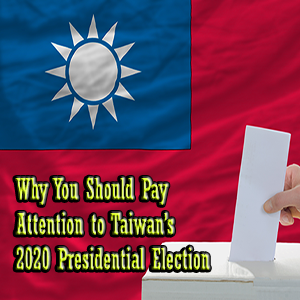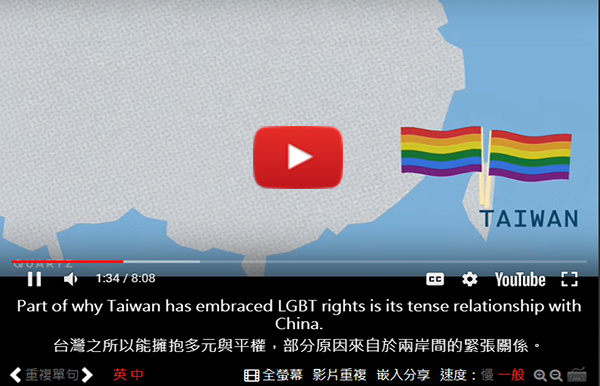Taiwan’s presidential election is just a month away!
Meet the candidates and their policies
How this election could affect you
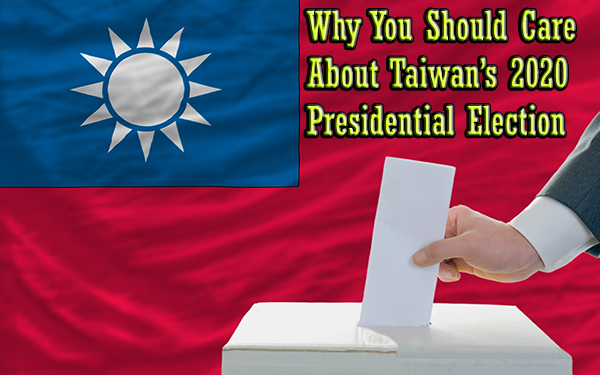
Introduction
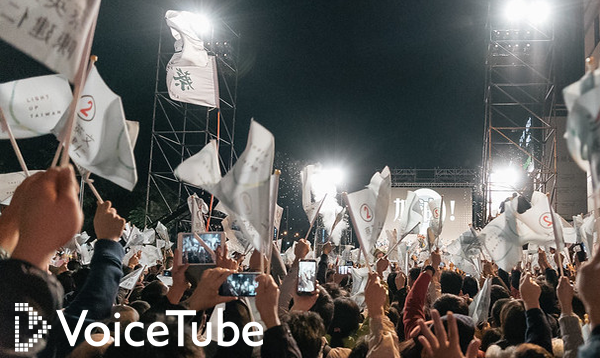
Taiwan’s upcoming presidential election on January 11th, 2020 will be one of the most poignant(1) in the nation’s history. This election could change the direction and future of Taiwan with respect to its energy usage, social liberties, and especially its relationships with China and the US.
Whether you are from Taiwan or not, this election could have consequences that affect the entire East Asian region, or even the global power structure. Today, we are going to break down this election in and tell you exactly why you should care about it.
Taiwan’s Political Parties and Candidates
Democratic Progressive Party (DPP) 民主進步黨
The DPP is considered to be more on the side of Taiwanese laborers and the underprivileged(2). They’ve traditionally done very well in southern Taiwan where there aren’t as many international corporations and big businesses.
The DPP is more aligned with progressive values, environmentally friendly policies, and Taiwanese Independence. This means that they are more supportive of gender equality and educational policies, and they wish to create economic ties with international multiple partners (with less reliance on China).
The DPP started in 1986 and current President Tsai Ing-wen, is a member of this party.
Kuomintang of China (KMT) 中國國民黨
The KMT formed in 1912 in mainland China and came to Taiwan with Chiang Kai-shek in1949 after losing the civil war to the Communists. The KMT has traditionally supported the “One China” policy, but they want it ruled under the KMT, not the communists.
The KMT has a lot of money and owns many foreign businesses and assets(3) that include fishing plants in Alaska, a farm in Israel, investments in Japan and Singapore, and so on.
KMT supporters include a lot of old military personnel, law enforcement authorities, and Taiwanese international business owners. The KMT often focuses on the economy, even if that means getting cozier with China. When it comes to social issues, they tend to be more conservative.
Tsai Ing-wen (DPP) 蔡英文
Tsai Ing-wen is the current president—she assumed office in May 2016. She is generally considered the more progressive candidate, pushing for gender equality, clean energy, and less reliance on China.
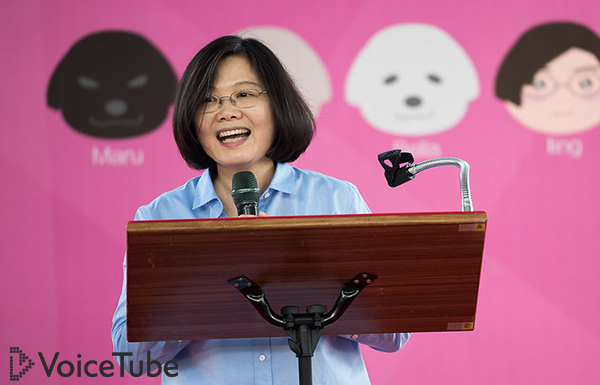
Han Kuo-yu (KMT) 韓國瑜
Han Kuo-yu is the current mayor of Kaohsiung. He came out of nowhere and took his party by storm(4). Many KMT members dislike Han, but his bold rhetoric and willingness to say whatever is on his mind has charmed certain segments of the population.
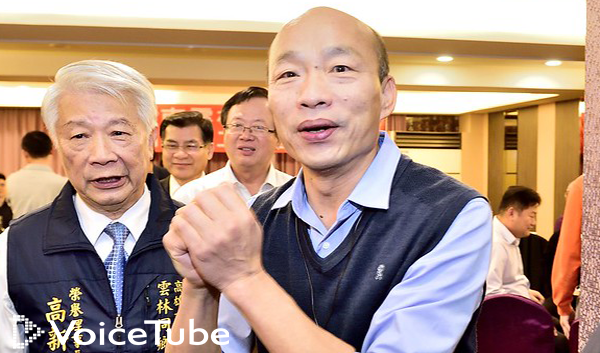
Policies
Economy and International Relations
Tsai
Tsai Ing-wen gave US President-elect Donald Trump an unexpected call in 2016, marking the first time a Taiwanese president spoke to a US president since 1979. It could mean Taiwan seeks a deeper relationship with the US, especially since Tsai has spent a significant amount of her presidency under the scrutiny(5) of China. In January 2019, she stated that the so-called “1992 Consensus” isn’t recognized by Taiwan.
Even with weakened support from China, Taiwan’s economy and GDP have remained steady, maintaining three successive years of growth at 1.5%-2.5%.
Han
To be frank, it’s really hard to tell what Han Kuo-yu thinks of China; in one instance, he supported the “1992 Consensus.” He also said he opposed Beijing’s proposal for unification under “one country, two systems,” stating that “Taiwanese can never accept it unless it is over my dead body.” It is often hard to ascertain what Han is really thinking—his campaigning style and rhetoric are reminiscent(6) of Donald Trump in 2016.
Energy
Tsai has been clamoring for a nuclear-free Taiwan by 2025. She is also pushing for 20% of Taiwan’s energy to come from renewables that same year. The DPP has hired Ørsted of Denmark to construct Taiwan’s first offshore wind farm. By the looks of it, Tsai is pushing hard for a cleaner, greener Taiwan, which likely resonates(7) with the younger generation.
Han
Han is supportive of nuclear energy and wants to restart work on Taiwan’s fourth nuclear power plant. He has criticized Tsai and her party for being too hasty in writing off the benefits of nuclear energy.
Han made a claim that he wants 50% of Taiwan’s energy to come from renewables by 2025, but there was no policy put forth, leading critics to believe it was pie in the sky(8) rhetoric to lure younger voters.
Labor
Tsai
Tsai believes in more public housing, incentivizing entrepreneurship amongst youths, and creating government-mandated childcare support.
She has generally been on the side of employees, dictating a five-day, 40-hour workweek (with an option for overtime pay on a 6th day). However, her administration reduced the number of public holidays from 19 to 12, which angered a number of laborers.
Han
Han wishes to subsidize Taiwanese employees who opt to put money into a pension fund—claiming there isn’t currently enough incentive to do so. He also wants to put more money into the labor insurance fund as well as giving parents longer partially-paid leave after having their second child.
Equality
Tsai
One of President Tsai’s biggest successes has been seeing same-sex marriage legalized in Taiwan. Same-sex couples have almost all the rights that heterosexual(9) couples have (but they can’t adopt children unless they are genetically related). Taiwan is the first country in Asia to legalize same-sex marriage, so this is huge, especially for the younger population.
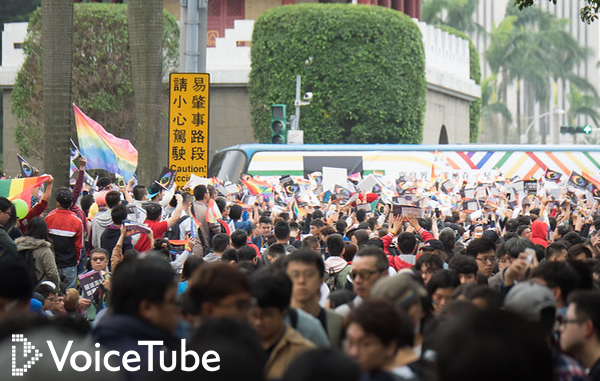
Han
Han is far more conservative. He has vowed to overturn the same-sex marriage bill that was passed under Tsai’s administration.
Is China Interfering in the Election?
Many people claim that China is trying to influence the election. Han Kuo-yu has been accused of taking money from Beijing—which he firmly denies, stating that he will drop out(10) of the race if it is discovered he has accepted money from China.
Pro-China investors have supposedly bought media outlets in Taiwan and have collaborated with Beijing in distributing propaganda(11). China is believed to be making bots and fake accounts on social media outlets as well as the microblogging system Sina Weibo and the widely-used messaging app LINE.
The most conspicuous case occurred in Japan after Typhoon Jebi left some Taiwanese travelers stranded. The travelers boarded buses with mainland Chinese passengers and were possibly (nobody knows for sure) asked to state that they were Chinese before being allowed to board the bus. China proceeded to publish propaganda saying that Taiwanese diplomat Su Chi-cheng didn’t do enough to help the stranded Taiwanese travelers. He committed suicide shortly after reading the distressing comments.

Why You Should Care
The riots in Hong Kong are still going on after many months of violence and unrest. Taiwan is rightly questioning whether or not this could happen to them if they were to become part of China. Having a pro-China candidate win the presidency in 2020 could come at a time when China is willing to take more action towards reclaiming Taiwan. If China gained a foothold(12), it could spark a war with the U.S. as well as unleashing a wave of instability in the region.
This is an opportunity for Taiwan to further social progress and green initiatives, making it a potential role model for neighboring nations, which are considerably more conservative in many ways. Equality, liberty, and eco-friendly policies are values that younger Taiwanese are likely to push for in future elections.
Lastly, this is a plight for independence from a nation that has embraced democracy and proven itself a loyal ally to other democratic nations. They’ve made human rights and democratic principles a priority. This election marks a possible point of no return for Taiwan and will surely have consequences not just for the tiny island nation, but for the region, and possibly the whole world.
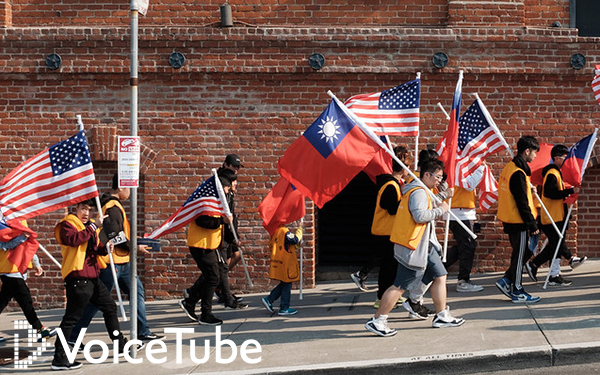
Vocabulary
1. poignant (adj.)
Def. deeply affecting
Ex. Losing that World Series game was the most poignant moment of the starting pitcher’s career.
2. underprivileged (adj.)
Def. deprived through social or economic conditions of some of the fundamental rights of all members of a civilized society
Ex. Mexicans are often underprivileged in the USA and have trouble finding good jobs.
3. assets (n.) (pl.)
Def. the entire property of a person, association, corporation, or estate applicable or subject to the payment of debts
Ex. If you don’t have any assets, your taxes will be easy to file.
4. take sb./sth. by storm (phr.)
Def. to quickly become very popular throughout (a place)
Ex. Lady Gaga took the world by storm when she released her hit song “Poker Face.”
5. scrutiny (n.)
Def. a searching study, inquiry, or inspection
Ex. You will be under police scrutiny until they find the real killer.
6. reminiscent (adj.)
Def. of the character of or relating to
Ex. “Star Wars Episode VII” was far too reminiscent of “Episode IV,” so I thought it was a bit boring.
7. resonate (v.)
Def. to relate harmoniously: strike a chord
Ex. The new rule of “no eating in the office” won’t resonate well with the employees.
8. pie in the sky (n.)
Def. an unrealistic enterprise or prospect of prosperity
Ex. Our boss’s dream about the company’s success is just pie in the sky.
9. heterosexual (n.)
Def. characterized by a tendency to direct sexual desire toward the opposite sex
Ex. A heterosexual man will date women.
10. drop out (phr.)
Def. to abandon an attempt, activity, or chosen path
Ex. Don’t drop out of school. You have four weeks left!
11. propaganda (n.)
Def. the spreading of ideas, information, or rumors for the purpose of helping or injuring an institution, a cause, or a person
Ex. One of the reasons Hitler rose to power was because the Nazi party used propaganda successfully.
12. foothold (n.)
Def. a position usable as a base for further advances
Ex. Our band needs to gain a foothold in this theater before we can move on to playing at bigger venues.
https://tw.voicetube.com/videos/76752
Photos
Taiwan 2016 presidential election by Studio Incendo
05.20 總統出席「2017和你一起永和寓所童樂會」,歡迎小朋友的蒞臨 by 總統府
crypto social media by TLC Jonhson
Sources
http://factsanddetails.com/southeast-asia/Taiwan/sub5_1c/entry-3826.html
https://www.nbr.org/publication/taiwans-2020-presidential-election-and-the-china-factor/
https://www.nytimes.com/2018/11/22/world/asia/taiwan-elections-meddling.com
